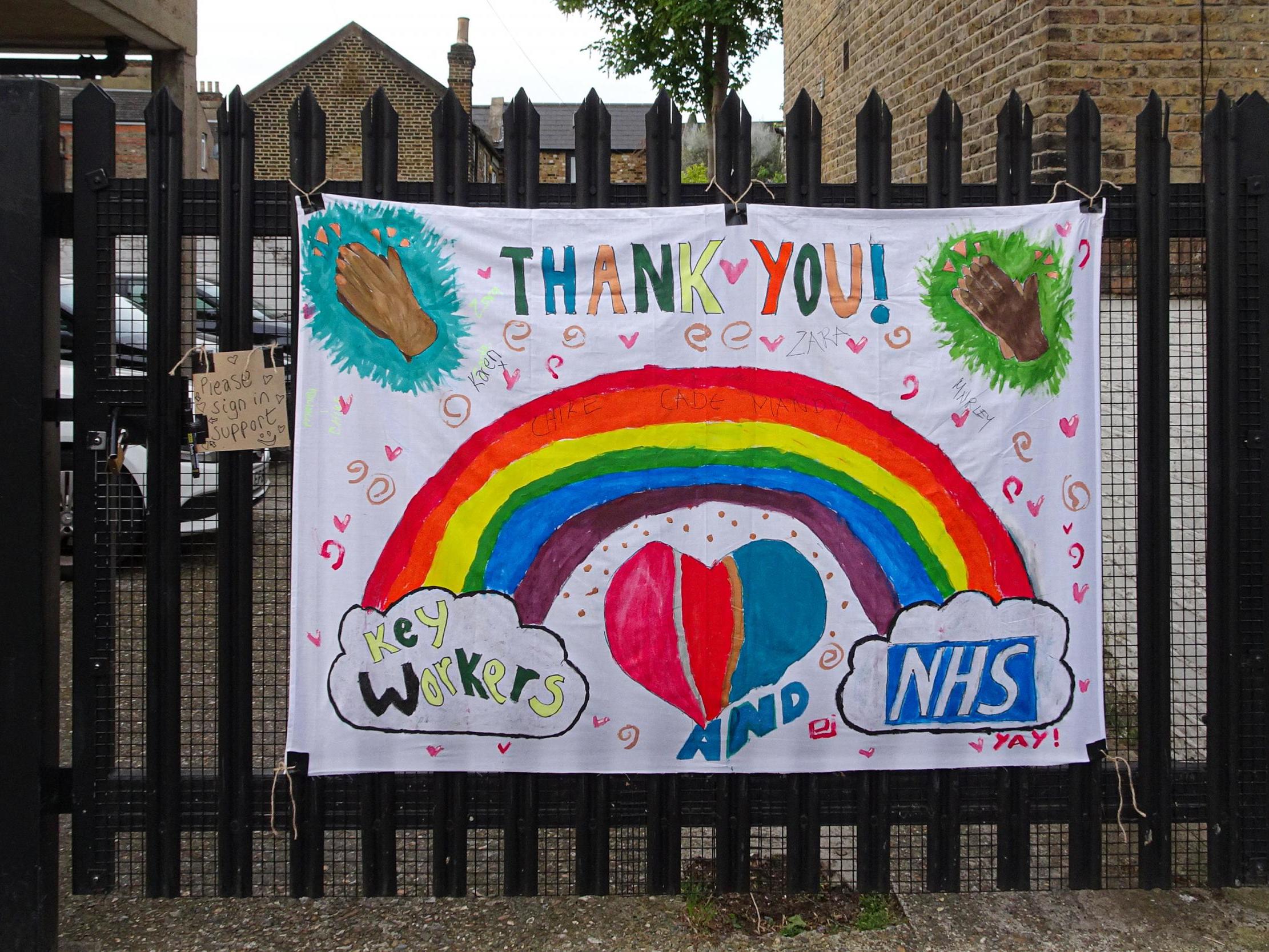After the toughest year in NHS history, ministers should do more than merely clap for carers
Editorial: Boris Johnson made progress on health at December’s election, but will forfeit the trust of voters if he allows ‘whatever it needs’ to become another empty promise

Normally, a 72nd birthday would not be ringed in the diary as a special one, like the 70th or 75th. But the anniversary of the National Health Service is an important moment after the toughest year in its history.
Whatever the failings in the UK’s response to coronavirus exposed by the eventual public inquiry, the NHS will surely emerge with credit. It rose to the unprecedented challenge, and its staff worked heroically, tirelessly and flexibly. It built seven Nightingale hospitals in weeks rather than years.
There were, inevitably, some mistakes. The understandable rush to protect hospitals from being overrun by coronavirus patients, led to people being discharged to care homes without being tested for the virus.
Although the country is hopefully entering a new phase as lockdown measures ease, for the NHS the pandemic is far from over.
The prospect of a second coronavirus wave this winter is very real, making a huge flu vaccination campaign vital. The woeful lack of planning for a pandemic cannot be repeated; resilience must now become the watchword.
Further investment will be needed to ensure mass testing, adequate infection control measures and supplies of personal protective equipment. The backlog of non-coronavirus treatment, a worrying consequence of the crisis, will require resources to prevent waiting lists rising to 10 million by December, according to the NHS Confederation.
The NHS must continue to use the capacity in the private health sector. Many of the patients who have recovered from coronavirus will require continuing treatment.
The pandemic will also require a bigger funding commitment to already stretched mental health services. In the short term, ministers should do more than merely clap for carers; they should reward NHS and social care staff for their Herculean efforts with a more generous pay rise than originally planned.
Despite all these pressures, there are signs that the government is baulking at NHS England’s demand for another £10bn this year, potentially calling into question Rishi Sunak’s pledge to give the NHS “whatever it needs”. Matt Hancock, the health secretary, insisted yesterday that the commitment still stands. “We protected the NHS during this crisis and we will continue to protect the NHS in the future,” he said.
Of course, the chancellor cannot sign a “blank cheque” after funding £123bn of support for jobs, business, health and other services. The government has not always delivered value for money in this emergency, whether on its ill-fated mobile phone app or some of the contracts awarded to private firms, as The Independent’s investigation into the Lighthouse testing laboratories showed.
Yet the case for another significant NHS cash injection is unanswerable. Boris Johnson made some progress on health, traditionally a difficult issue for the Conservatives, at December’s election, but will forfeit the trust of voters if he allows “whatever it needs” to become another empty promise.
Mr Johnson should also honour the pledge he made a year ago on becoming prime minister to “fix” the crisis in social care after 20 years of procrastination by politicians of all hues. He said then he had a plan, but has produced nothing more than a promise to seek a cross-party consensus and ensure people do not have to sell their home to pay their care bills.
Mr Johnson should take to heart the powerful plea yesterday from Sir Simon Stevens, chief executive of NHS England, to unveil a new social care blueprint by the NHS’s 73rd birthday. Coronavirus provides no excuse for further delay. His government is finding time to restructure Whitehall departments, reform the civil service and negotiate trade deals. Social care must now move to the top of Mr Johnson’s in-tray.
Although people will have different views about the government’s handling of the pandemic, the whole country can surely agree that it painfully highlighted the need for a joined-up health and care service. After the second world war, the welfare state, with the NHS at its heart, was born. A properly funded national care service is the right way to ensure one positive legacy from the country’s biggest challenge since.
Join our commenting forum
Join thought-provoking conversations, follow other Independent readers and see their replies
Comments